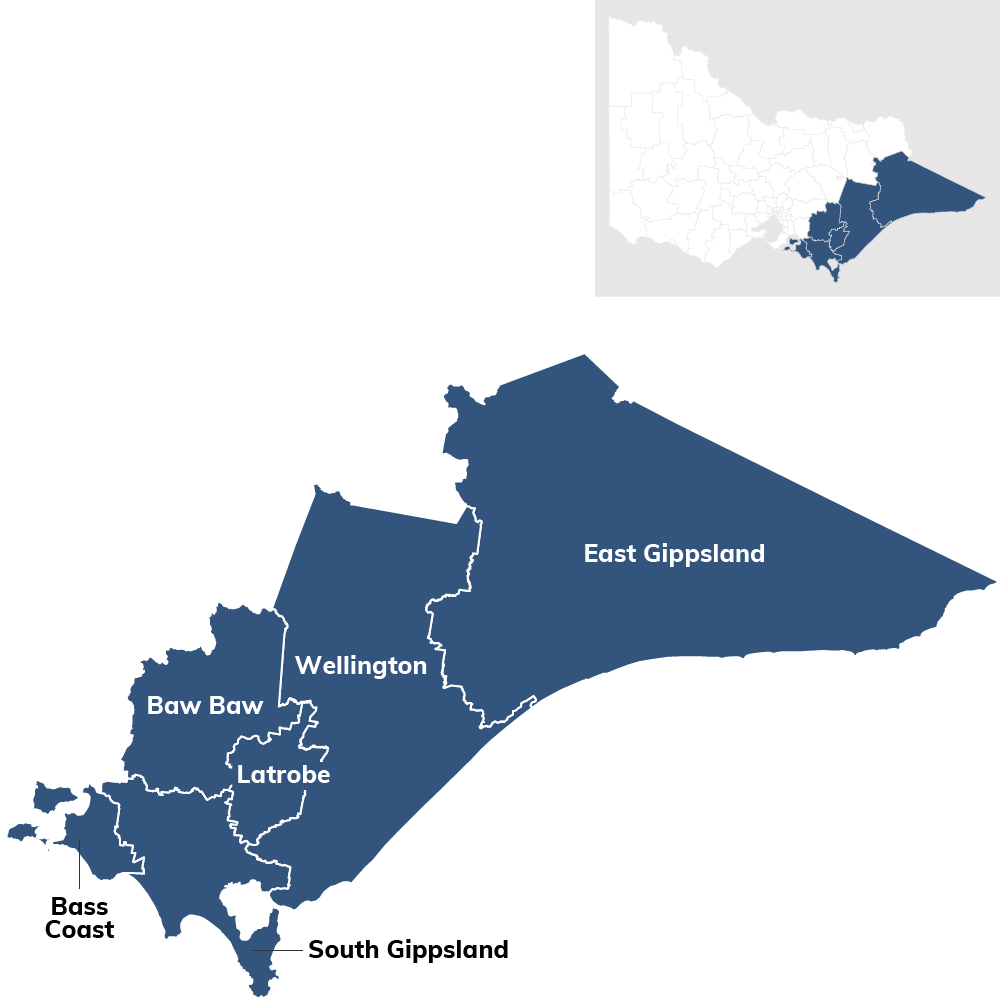The Regional Development Australia (RDA) Gippsland committee drives economic development by identifying and advocating for regional priorities and projects that leverage our comparative strengths. From supporting the business case for Gippsland’s Hi-Tech Precinct to driving regional strategic planning through the Gippsland Regional Plan Leadership Group, the committee works to bring investment to the region and create jobs.
Committee members
The RDA Gippsland committee members are selected for their business expertise and understanding of the region’s key economic strengths. The high calibre team has global, national and local experience in energy, agriculture, education and health.
What we do
The committee engages across agencies, local councils, industry bodies and the private sector to facilitate regional economic development, and to shape projects to align with regional priorities, as well as state and Australian Government policy. It draws upon the data, knowledge, experience and opinions of regional alliances, partnerships and networks to support small-scale projects through to the development of economic sectors. Our top 5 strategic priorities are collaboration, regional advocacy, communications and engagement, informing Australian Government policy and regional strategy and planning.
The Gippsland region is positioned to capitalise on tourism, energy, food and fibre, and advanced manufacturing. The committee works with the region to drive and leverage investment for:
- tourism
- circular economy
- advanced manufacturing
- digital connectivity
- food and fibre industries
- energy.
Who we work with
The RDA Gippsland committee collaborates with businesses, not-for-profits, local councils, industry bodies and agencies to build sector strengths, promote regional capabilities and leverage regional advantages. It works with:
- Gippsland local government areas of:
- Bass Coast Shire Council
- Baw Baw Shire Council
- East Gippsland Shire Council
- Latrobe City Council
- South Gippsland Shire Council
- Wellington Shire Council
- Like-minded initiatives including the Gippsland Regional Partnership and Committee for Gippsland.
- RDA committees across Victoria, including RDA Melbourne, and bordering interstate RDA committees.
Our region

Located in the south eastern corner of Victoria Gippsland has diverse landscapes with spectacular regional attractions including the Gippsland Lakes, Wilson’s Promontory and the Penguin Parade operated by Phillip Island Nature Parks. Other scenic nature locations include Mount Baw Baw, Tarra Bulga, Croajingolong and Morwell National Parks.
As a major food producer and manufacturer specialising in dairy and vegetable processing, Gippsland farms account for at least one quarter of Victoria’s milk, vegetable and beef production with a number of Gippsland’s businesses exporting food across the world. Other sectors include tourism, manufacturing and energy. Gippsland is rich in natural resources. The Latrobe Valley’s brown coal reserves are estimated to be 65 billion tonnes, which equals 25% of the world’s known brown coal reserves. Gippsland’s offshore gas also supplies Melbourne, regional centres across Victoria as well as the wider east-coast gas market.
The Princes Highway is the main route through Gippsland which is also supported by train services from Melbourne to Bairnsdale.
Case study - seizing economic opportunities
RDA Gippsland played a key role in the development of the Hi-Tech Gippsland Precinct by funding its business case. It worked with Federation University, TAFE Gippsland (formerly Federation Training) and local industry and community to drive the development of the Precinct concept.
The Precinct includes the Morwell Innovation Centre, which provides new product development, business incubation and start up support. It centralises research and innovation, creates jobs by accelerating technology adoption and will attract new investment in the region. With creative spaces to promote design thinking and practice the Innovation Centre will play an important role in supporting the expansion of the region’s health, food and fibre, advanced manufacturing and new energy growth sectors.
Co-located and integrated with Gippsland Tech School, the Precinct also supports students from across the region to learn the skills required by local industries. Gippsland Tech School provides students a clear pathway from secondary school to vocational training, tertiary education, and research in one location. Discover more about the Hi-Tech Gippsland Precinct.
